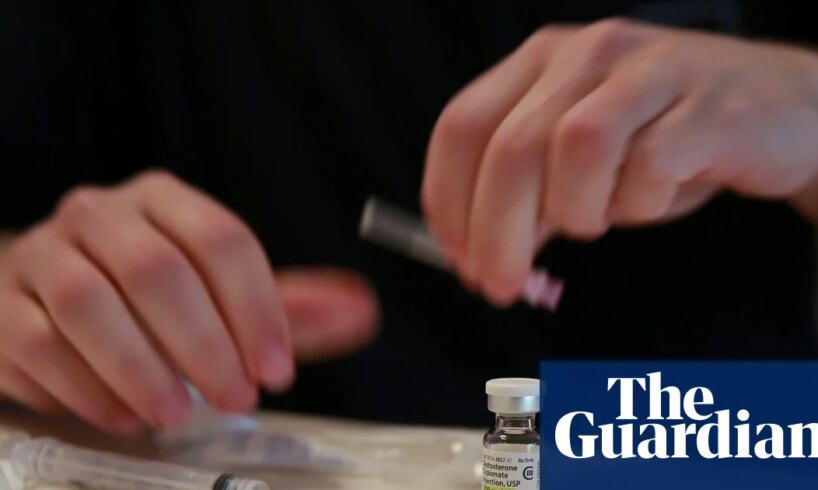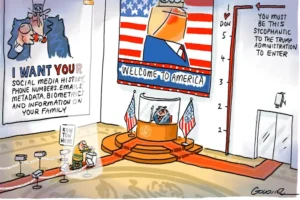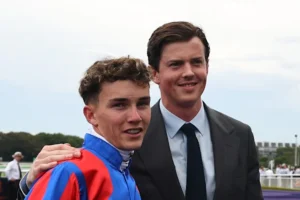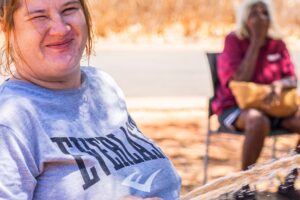
The Queensland health minister has issued a new order banning the prescription of puberty blockers for transgender patients, just hours after the state’s supreme court ruled the government’s first attempt was unlawful.
On Tuesday, Justice Peter Callaghan ruled in favour of a challenge by the parent of a transgender child, judging that the January directive establishing the ban was made improperly and was unlawful.
He ruled that the health director general, David Rosengren, failed to properly consult the executives of the state’s hospitals and health services, as required under the state law, before he issued the order banning transgender hormone therapies for new patients aged under 18 while an independent review into the use of puberty blockers and hormone therapy for minors experiencing gender dysphoria took place.
Guardian Australia exclusively revealed that Rosengren consulted with the executives for less than half an hour in a Microsoft Teams meeting, at the same time as the health minister, Tim Nicholls, held a press conference announcing the review and ban, at 10am on 28 January.
In a statement to parliament on Tuesday evening, Nicholls said the decision had focused on the process for making the directive and not whether it was appropriate.
Nicholls said the government had been “prepared for an adverse finding” and that he had had an opportunity to give the matter further consideration.
“I am satisfied it is appropriate and in the public interest that I issue a written ministerial direction.”
The directive would apply in the same terms as the January decision – banning the new prescription of gender-affirming treatments to children and adolescents. Young people who were already undergoing treatment prior to the first ban were not affected.
Nicholls said the ban would remain in place until the government had considered the findings of an ongoing review.
Sign up: AU Breaking News email
Callaghan had ruled none of the individuals consulted knew about the contents of the directive until the meeting. He ruled the meeting was “functionally irrelevant”, that the decision had already been made, and there were few changes only to the “syntax” of the document as a result of the consultation.
“Adjustments of this nature could not be thought to bear at all on the actual decision – already made – to suspend hormone treatment,” he said.
“The process of consultation required by … [the act] to be observed in the making of the decision was not observed.”
Matilda Alexander, a solicitor at LGBTI Legal Service who acted for the applicant, said Queensland was the only state to ban gender-affirming care.
“I think that the ban on gender-affirming care has caused so much pain and so much suffering for children in Queensland, and I hope that that pain and that suffering is now at an end,” Alexander said after the supreme court’s decision.
Alexander read a statement from her client, who said she had gone through a “harrowing and traumatising ordeal”.
“My child’s medical treatment was ultimately decided by the government with no input by anyone with expertise in treating transgender young people. I don’t know any Queenslander who would want decisions about their child’s medical care being made by politicians,” the statement said.
The January ban affected about 491 children who were on the waiting list at the Queensland Children’s Gender Service, based at the Queensland Children’s hospital. The nearly 600 children already on a treatment plan were able to continue to access the treatments.
skip past newsletter promotion
Sign up to Breaking News Australia
Get the most important news as it breaks
Privacy Notice: Newsletters may contain information about charities, online ads, and content funded by outside parties. If you do not have an account, we will create a guest account for you on theguardian.com to send you this newsletter. You can complete full registration at any time. For more information about how we use your data see our Privacy Policy. We use Google reCaptcha to protect our website and the Google Privacy Policy and Terms of Service apply.
after newsletter promotion
AMA Queensland earlier called for “sensitivity and evidence-backed decision-making in the wake of the supreme court’s ruling”.
“Doctors have advised that the ban has caused distress and harms to this already-vulnerable patient cohort, their families and treating clinicians,” the AMAQ president, Dr Nick Yim, said in a statement.
“Treatment decisions must always be made by clinicians based on science, not ideological, political or other clinically irrelevant beliefs.”
The applicant had challenged the government’s decision in the supreme court on three grounds, including that Rosengren was improperly influenced by a cabinet decision, alleging that he had been influenced by “political interference”.
“The application will be allowed on ground three (lack of consultation). It would have succeeded also on grounds one and two, although the questions raised under those headings are more difficult,” Callaghan said in the judgment.
The judge noted that neither the minister nor Rosengren gave evidence in the case and much of the sequence of events surrounding the decision-making had to be “gleaned” from the accounts of others, or secondary sources such as emails. Much of the case was also covered by cabinet secrecy.
The case was a judicial review of the directive – a challenge of its process, not its merits – which means there can be no damages awarded by the supreme court.
A separate challenge against the decision on anti-discrimination grounds is before the Queensland civil and administrative tribunal.
The ban, which only applied to transgender children, was widely condemned by health authorities. The federal sex discrimination commissioner, Anna Cody, described the decision as “harmful” and “discriminatory”.
An independent review of the state’s gender health system last year found the service provided “effective care from referral to discharge” and recommended doubling its funding. The state government did not do so.





